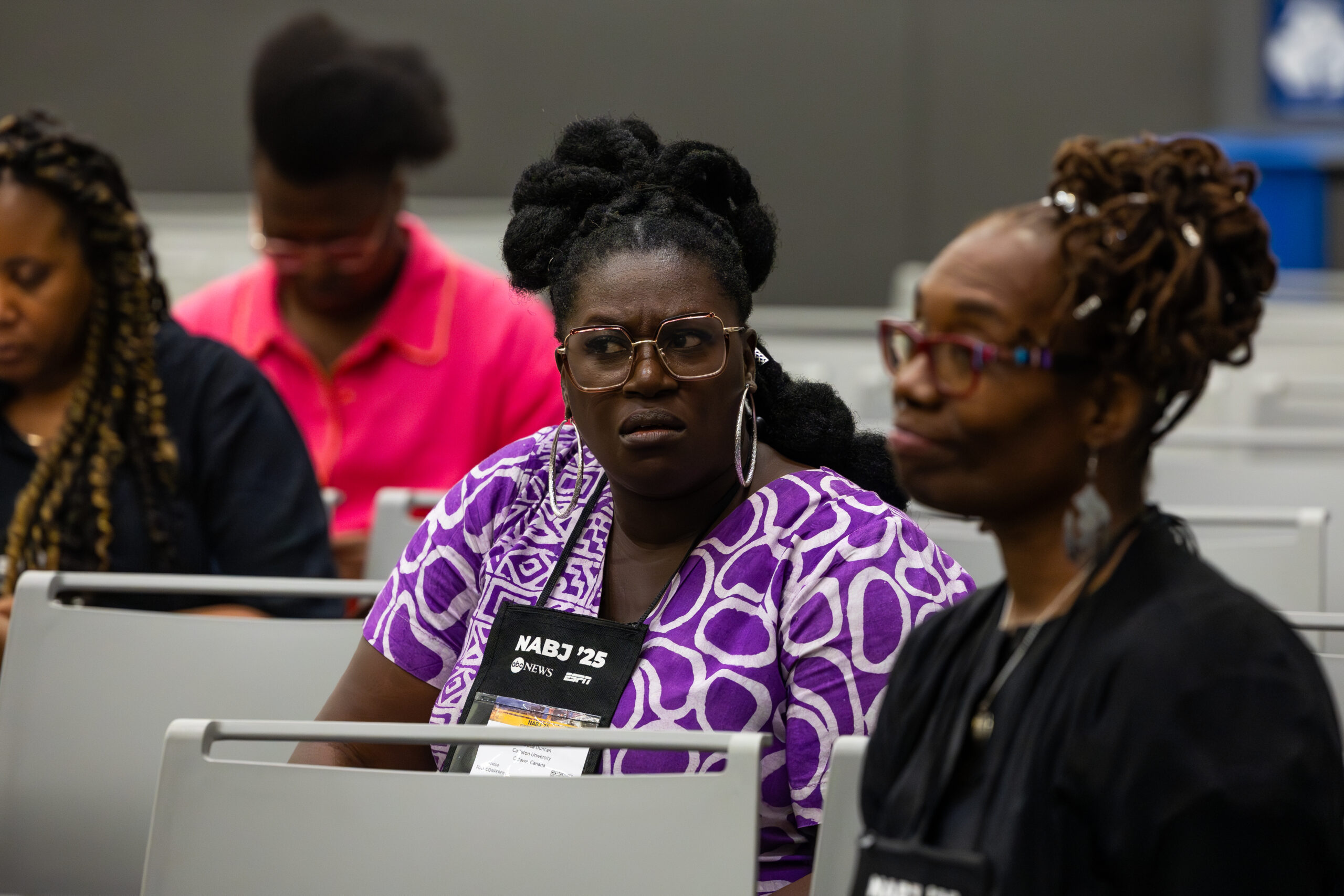
Kimora Wong Sing
Academic members say they have long faced obstacles and confusion regarding their voting eligibility, despite language in the National Association of Black Journalists’ constitution affirming their right to vote. The issue resurfaced ahead of the organization’s 2025 elections.
Lisa Armstrong, the academic representative on the NABJ Board of Directors, has been vocal about voting inconsistencies affecting academic members, who are journalism educators, many with professional journalism experience.
“Academic members have had the right to vote since 2014,” Armstrong said during Tuesday’s board meeting at the NABJ Convention in Cleveland. “Even I was told, like many others, that I could only vote for the academic representative and no one else.”
The NABJ constitution says academic members with at least five years of prior professional journalism experience may vote in elections involving the full membership, except for student and media-related representative positions. But Chapter 4, Article 1, Section 5 adds: “And only such academic members are eligible to serve as, or to vote for, the academic representative to the Board of Directors.”
This wording, combined with unclear enforcement and discrepancies in internal records, has fueled conflicting interpretations of the constitution.
Armstrong claims many eligible members have been blocked from voting or misinformed about their rights.
In 2014, NABJ amended its constitution to expand voting rights to academic members with professional experience. Michelle Johnson, the first academic representative on the NABJ board, recalled that shift.
“Before I joined the board, there was a vote on constitutional amendments that gave academic members full voting rights, not just for the academic representative,” Johnson said. “After the 2014 amendment, we were able to vote for the full slate.”
She said she was surprised to hear some academic members were still having voting issues.
“I saw a notice saying academic members could vote ‘for the first time,’ and I thought, ’Wait, we’ve had that right for years,’ Johnson said. “I’ve been voting since 2014 or 2015. I hadn’t heard of any issues until now.”
Armstrong said enforcement has remained inconsistent, partly due to a lack of awareness among national office staff.
“When I brought this up, I was told to file a constitutional amendment,” Armstrong said. “The language already said we had the right. Some told me that was just my interpretation, but it wasn’t.”
In May, Armstrong approached NABJ Parliamentarian Sia Nyorkor and President Ken Lemon for clarification. She said she was told some founders and past leaders believed academic members had never voted in the organization’s nearly 50-year history.
“I asked, ‘When was the language changed? What was the vote? What was the vote count?’ I didn’t get clear answers,” Armstrong said.
Nyorkor later confirmed the constitution was amended again on Aug. 4, 2023, though Armstrong said the national office had not explained what was changed or when members voted on the amendment.
Former academic representative Jarrad Henderson joined Tuesday’s meeting via Zoom and questioned the changes.
“I spent a good amount of time during my tenure exploring options to present an amendment to change that protocol,” Henderson said. “I’d appreciate not being gaslit and having someone show me where and when that language changed for our members.”
By July, Nyorkor confirmed all eligible academic members would receive ballots for the 2025 election, a move Armstrong called “a step forward.” Still, questions remain about how NABJ will verify a member’s professional experience moving forward.
“We are journalists. Many of us still actively report or produce stories,” Armstrong said. “But our contributions and challenges aren’t always understood or valued equally within the organization.”
According to NABJ’s 2015 election policy, academic members were only allowed to vote for their designated representative, a policy still listed in NABJ’s publicly available materials as recently as this year.
At the Aug. 7 Academic Task Force meeting, no voting issues were raised among attendees. But Armstrong said that does not reflect what she has heard behind the scenes.
“What came up in the board meeting is that some people who had personal connections still got to vote,” she said. “Meanwhile, others with the required experience were left out.”
Armstrong said her priority is ensuring academic members are fully represented and equipped with clear, accurate information.
“We’ve had the right to vote,” she said. “It’s time the organization consistently honored that right.”

Be the first to comment